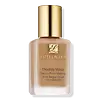What's inside
What's inside
 Key Ingredients
Key Ingredients

 Benefits
Benefits

 Concerns
Concerns

 Ingredients Side-by-side
Ingredients Side-by-side

Water
Skin ConditioningCyclopentasiloxane
EmollientTrimethylsiloxysilicate
EmollientPEG/PPG-18/18 Dimethicone
EmulsifyingButylene Glycol
HumectantTribehenin
EmollientPolyglyceryl-3 Diisostearate
EmulsifyingMagnesium Sulfate
Tocopheryl Acetate
AntioxidantPolymethylsilsesquioxane
Methicone
EmollientLaureth-7
EmulsifyingXanthan Gum
EmulsifyingAlumina
AbrasiveSodium Dehydroacetate
PreservativeDisteardimonium Hectorite
StabilisingCellulose Gum
Emulsion StabilisingPropylene Carbonate
SolventPentaerythrityl Tetra-Di-T-Butyl Hydroxyhydrocinnamate
AntioxidantPhenoxyethanol
PreservativeIron Oxides
Mica
Cosmetic ColorantCI 77891
Cosmetic ColorantWater, Cyclopentasiloxane, Trimethylsiloxysilicate, PEG/PPG-18/18 Dimethicone, Butylene Glycol, Tribehenin, Polyglyceryl-3 Diisostearate, Magnesium Sulfate, Tocopheryl Acetate, Polymethylsilsesquioxane, Methicone, Laureth-7, Xanthan Gum, Alumina, Sodium Dehydroacetate, Disteardimonium Hectorite, Cellulose Gum, Propylene Carbonate, Pentaerythrityl Tetra-Di-T-Butyl Hydroxyhydrocinnamate, Phenoxyethanol, Iron Oxides, Mica, CI 77891
Water
Skin ConditioningDimethicone
EmollientTalc
AbrasiveTrimethylsiloxysilicate
EmollientPEG-10 Dimethicone
Skin ConditioningNiacinamide
SmoothingIsododecane
EmollientSilica
AbrasiveGlycerin
HumectantCetyl PEG/PPG-10/1 Dimethicone
EmulsifyingTocopherol
AntioxidantSodium Chloride
MaskingHydrogen Dimethicone
Magnesium Sulfate
Cetyl Alcohol
EmollientDimethicone/Vinyl Dimethicone Crosspolymer
Skin ConditioningDisteardimonium Hectorite
StabilisingMethicone
EmollientPropylene Carbonate
SolventTriethoxycaprylylsilane
Ethylhexylglycerin
Skin ConditioningPentaerythrityl Tetra-Di-T-Butyl Hydroxyhydrocinnamate
AntioxidantAluminum Hydroxide
EmollientPhenoxyethanol
PreservativeSodium Dehydroacetate
PreservativePotassium Sorbate
PreservativeBenzoic Acid
MaskingDehydroacetic Acid
PreservativeParfum
MaskingCI 77491
Cosmetic ColorantCI 77492
Cosmetic ColorantCI 77499
Cosmetic ColorantCI 77891
Cosmetic ColorantWater, Dimethicone, Talc, Trimethylsiloxysilicate, PEG-10 Dimethicone, Niacinamide, Isododecane, Silica, Glycerin, Cetyl PEG/PPG-10/1 Dimethicone, Tocopherol, Sodium Chloride, Hydrogen Dimethicone, Magnesium Sulfate, Cetyl Alcohol, Dimethicone/Vinyl Dimethicone Crosspolymer, Disteardimonium Hectorite, Methicone, Propylene Carbonate, Triethoxycaprylylsilane, Ethylhexylglycerin, Pentaerythrityl Tetra-Di-T-Butyl Hydroxyhydrocinnamate, Aluminum Hydroxide, Phenoxyethanol, Sodium Dehydroacetate, Potassium Sorbate, Benzoic Acid, Dehydroacetic Acid, Parfum, CI 77491, CI 77492, CI 77499, CI 77891
 Reviews
Reviews

Ingredients Explained
These ingredients are found in both products.
Ingredients higher up in an ingredient list are typically present in a larger amount.
Ci 77891 is a white pigment from Titanium dioxide. It is naturally found in minerals such as rutile and ilmenite.
It's main function is to add a white color to cosmetics. It can also be mixed with other colors to create different shades.
Ci 77891 is commonly found in sunscreens due to its ability to block UV rays.
Learn more about CI 77891Disteardimonium Hectorite comes from the clay mineral named hectorite. It is used to add thickness to a product.
It can also help stabilize a product by helping to disperse other ingredients.
Hectorite is a rare, white clay mineral.
Learn more about Disteardimonium HectoriteMagnesium Sulfate is a salt. More specifically, it is an epsom salt, or the bath salt used to help relieve muscle aches.
Despite having ‘sulfate’ in the name, it isn’t a surfactant or cleansing agent like sodium lauryl sulfate. Unlike those sulfates, magnesium sulfate doesn’t have the same cleansing or foaming properties (it's simply a type of salt).
In cosmetics, Magnesium Sulfate is used to thicken a product or help dilute other solids. It is a non-reactive and non-irritating ingredient.
One study shows magnesium deficiency may lead to inflammation of the skin. Applying magnesium topically may help reduce inflammation.
You can find this ingredient in sea water or mineral deposits.
Learn more about Magnesium SulfateMethicone is a type of silicone and is a simpler form of dimethicone.
Silicones are used to enhance the texture of products and have emollient properties. Methicone is used to give products a silky texture and improves spreadability.
Pentaerythrityl Tetra-Di-T-Butyl Hydroxyhydrocinnamate (long name, huh?) is a synthetic antioxidant.
It is used to help stabilize other antioxidants or prevent the color from changing in a product.
As an antioxidant, it helps fight free-radical molecules. Free-radical molecules are capable of damaging our cells and other genetic material. Thus, antioxidants may reduce the signs of aging.
This ingredient is oil-soluble.
Learn more about Pentaerythrityl Tetra-Di-T-Butyl HydroxyhydrocinnamatePhenoxyethanol is a preservative that has germicide, antimicrobial, and aromatic properties. Studies show that phenoxyethanol can prevent microbial growth. By itself, it has a scent that is similar to that of a rose.
It's often used in formulations along with Caprylyl Glycol to preserve the shelf life of products.
This ingredient is a solvent. It helps dissolve active ingredients and alter the texture of products.
Propylene Carbonate is commonly used in makeup and with clay, such as montmorillonite or bentonite.
Studies show this ingredient to be safe for cosmetics. When it is undiluted, it can cause skin irritation. (It is always diluted in skincare and makeup). This ingredient is water-soluble.
Propylene Carbonate is created from propylene glycol and carbonic acid.
Learn more about Propylene CarbonateThis ingredient is a preservative with antimicrobial properties. It is the sodium salt of dehydroacetic acid.
It is especially effective at preventing bacterial and fungal growth in low concentrations.
This silicone is an emollient. Emollients create a thin film on the skin to prevent moisture from escaping.
It is not soluble in water and helps increase water-resistance in products.
According to a manufacturer, it can blend seamlessly with silicone oils, such as Cyclopentasiloxane.
Learn more about TrimethylsiloxysilicateWater. It's the most common cosmetic ingredient of all. You'll usually see it at the top of ingredient lists, meaning that it makes up the largest part of the product.
So why is it so popular? Water most often acts as a solvent - this means that it helps dissolve other ingredients into the formulation.
You'll also recognize water as that liquid we all need to stay alive. If you see this, drink a glass of water. Stay hydrated!
Learn more about Water